|
Over half of the world's population now live in urban centers. From the large metropolises like New York City to the smaller cities like Regina, Saskatchewan, most people understand that the streets that you drive on, the location of the corner store, and the proximity of essential services are part of some concerted effort to respond to settlement patterns of people like you and me. We have come to call this 'urban planning'. But there are some common misconceptions about what urban planning is and what urban planners do.
10. The Street Grid Is Always Designed By Urban Planners
While it is true that the major streets like highways, main arterials, and some collector streets are planned for on a master thoroughfare plan, the street that you live on was likely configured by the developer of your subdivision (or their consultants). You see, when a subdivision is developed, they show how the development will connect with the larger streets that ARE planned for. Furthermore, they get to name the streets so long as there aren’t any duplicates. The smaller residential streets, while they are required to meet design specifications, can be laid out in any which way that the developer desires so long as it doesn't create connectivity and access issues (see the curvilinear mess of 1960s suburbia). Long story short, your city planner is not down at city hall drawing up street layouts nor are they the ones that came up with those silly street names.
9. Urban Planners Play SimCity All Day
SimCity, Cities: Skylines, and other city-building video games are simply simulations. They do not accurately portray the day-to-day nitty gritty of urban planning. In these games, one can build a complete city in a matter of hours, change the zoning of different areas, plop down new schools, police stations, hospitals what have you. New streets are built and anything in the way gets bulldozed. Sure, this all happens in real life, but there are countless hours of public hearings, studies, bond elections, protesters, NIMBYs, etc. Urban planners by role actually have very little to do with how things get developed in a city other than writing the code that developers must abide by. They don’t rezone people’s properties because they think it would be better to have mixed use instead of pure retail nor do they have a bulldoze button. They’d get sued, for real.
8. Urban Planners Say Where Schools Go
School boards and the voters whose property taxes fund the schools say where and when new schools are built. Urban planners plan for the future of their city or town, so their plans may show data about neighborhoods and their demographics, but they do not say where that school is going to go. Urban planners can advise school boards and other decision makers with data and information that allow them to make informed decisions. It is also true that schools create new demand for new neighborhoods as they will typically develop around schools, so in some ways school boards need to know future plans for areas that they might want to build a new school. The truth is that these sorts of decisions require a collaborative and comprehensive effort which urban planners are usually a part of, but they are not the deciders.
7. Urban Planners Say Where Fire and Police Stations Go
I will tell you what definitely does not happen, a city planner telling the police or fire chief where he can put his shiny new station. It is important to understand how local governments operate. For the most part, cities are either Mayor-Council or Council-Manager forms of government. Notice the lack of the Mayor-Planner or Council-Planner forms of governments. They do not exist, however that is not to say that the Mayors, Councilmembers, or Managers are not former urban planners. At any rate, urban planners are part of the team and collaborate with diverse stakeholders. Sometimes these are internal stakeholders and therefore the planner is there to provide demographic data to the decision makers. The locations of fire and police stations are typically determined by response times, overlapping coverage, and population density. You want more resources in areas where the most lives are potentially at risk, but you also want to be sure that the stations are spaced so that it does not take too long to respond to a problem. But at the end of the day, the fire chief usually has good instincts so just do what he says.
6. Urban Planners Have Always Been Around
While there have likely always been that person or a group of people who calls the shots on where things go, that is not the same thing as someone being a professional urban planner. Hippodamus of Miletus is widely regarded as the first urban planner for his role in laying out the cities of ancient Greece. But given enough absolute power, anyone can be generally considered an “urban planner”. Throughout modern history many of the so called “planners” of early American cities were civil engineers simply because much of the planning going on involved laying out capital improvements such as roads and public utilities. However when zoning authority was ruled a police power by the Supreme Court in 1926, urban planning became something a bit more than just streets and sewers, it now included land use regulation through zoning. Needless to say, urban planning required discretion which evidently was a turnoff to engineers. The profession is relatively new, but the mindset has been around for a long time.
5. Urban Planners Hate Developers
Urban planners need developers, so there is no hate to be had. Typically, developers are the movers and shakers and the ones who, you’ve guessed it, develop cities. Urban planners, although able to craft rules and regulations that serve to protect the health, safety, and welfare of the city, are not the ones who make the investments in new homes, businesses, factories, etc. An urban planner can plan for the perfect city, but without working with the development community, that city will not be built. If you are confused, remember that your city did not build that gas station on the corner, but they did say that the building has to be built to adopted standards such setbacks, height, parking, and health and safety stipulations. Now, sometimes there are disagreements between planners and developers regarding these requirements, but to suggest an adversarial relationship is pure nonsense.
4. Urban Planners Are Mere Bureaucrats
Urban planners by and large work for publicly funded agencies such as local governments and multi-jurisdictional agencies. Many people consider government employees to be bureaucrats or pencil pushers, but urban planners do not really fit that mold. Sure, they are tasked with enforcing the law and helping explain the city code to people for it to make sense, but that is not all they do. Urban planners are supporters of their community. Many were not born nor raised in the city that they are working in. This is important to note because they are working for people who have lived in that city their entire life. Try going to another city, that you have no real bond to, and then work as hard as you can to make it the best place on Earth. Urban planners are perhaps among the very few that have to do this during their careers. Simply put, urban planners are not bureaucrats because they often times are the ones pushing for cool and exciting ways of doing things that help the community work together. They are not status quo, they are contextually progressive.
3. Anyone Can Be An Urban Planner
Anyone can! Now if they will continue to be one after a few years is another thing. Becoming an urban planner requires at a minimum a four-year degree in a social science such as planning, geography, sociology, or a related field. Most entry-level jobs also require a Masters degree from an accredited planning program. Suppose you get through all of that and you still want to be an urban planner, you want to be sure that public service is a calling you are ready to fulfill. Not everyone likes to work with the public, discuss complex proposals in front of City Council and cameras, be ridiculed for being a pencil pusher (see item 4), or be the bearer of bad news. But if you have the desire to be in the know, to understand the ins and outs of the development of populated areas, work with important people on a daily basis, then maybe you too could be an urban planner!
2. Urban Planners Make Bank
Compensation for urban planning is generally good according to the Bureau of Labor Statistics. However, outside of major metropolitan areas, the salaries for urban planners can be very low. Coupled with the required education investments, urban planners are usually on par with teacher salaries (which itself is a travesty). Many people think that all government employees are paid handsomely and have great benefits. This may be true for Federal and State jobs, but it is not true for local government employees. Urban planning at the local level is often seen as a frivolous service and that when push comes to shove, anyone could do it (see item 3). The truth is that for the education requirement needed and the cost of that investment, your city planner made a large commitment and is in some respects, working for smiles. So when you see them at that public meeting, let them know that you appreciate their commitment.
1. Urban Planners Are Hippies
This one is probably true of the planners that are retiring this year. However the term hippie probably is not accurate in that it implies that planners are emotionally biased. Urban planners are interested in the facts and they utilize data to assist in decision making. Emotions are for other people to worry about. Urban planners are pragmatists who always want to see all sides of an issue before they weigh in, and that is quite the virtue to have. When everyone else is self-interested and think they have competing values, it is the urban planner who brings people together by finding the shared values and what is just. This makes them come off as being hippies or liberal because usually the data sides with progressive stances on major issues. Sustainability, poverty, justice system reform, etc. are all issues that are either rooted in or have major ramifications on cities. The urban planner evaluates the facts and data, and if that makes them a hippie, well so be it!
urban planning blog
|
|
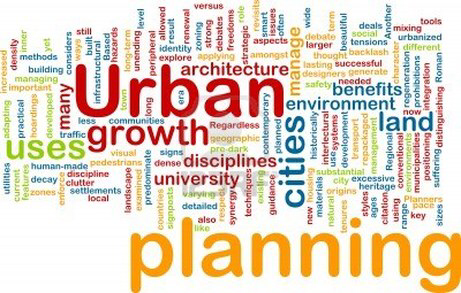
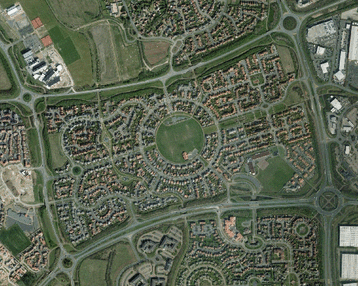
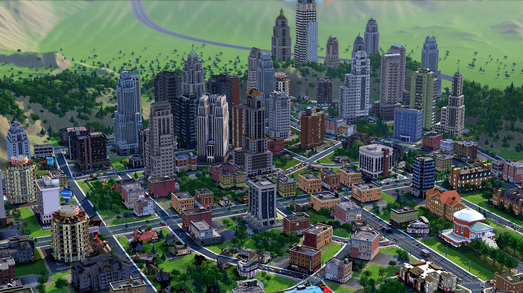
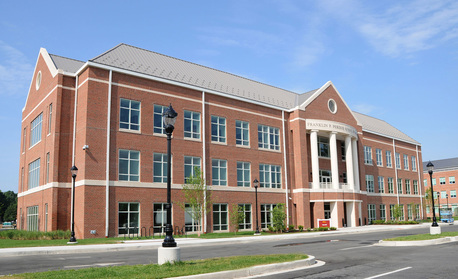
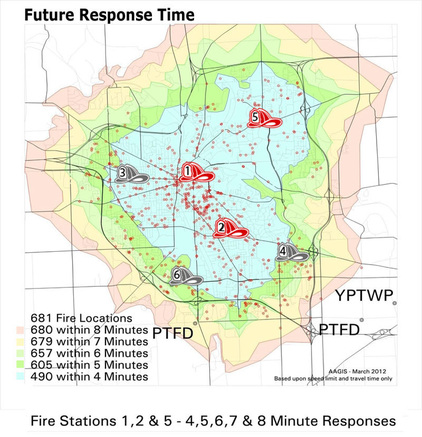



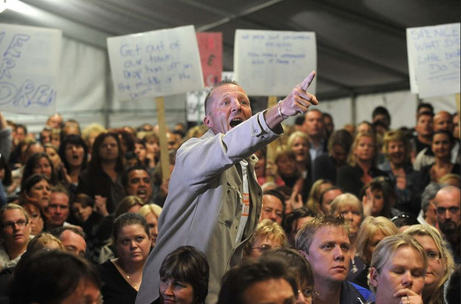


 RSS Feed
RSS Feed